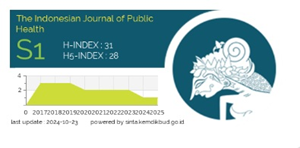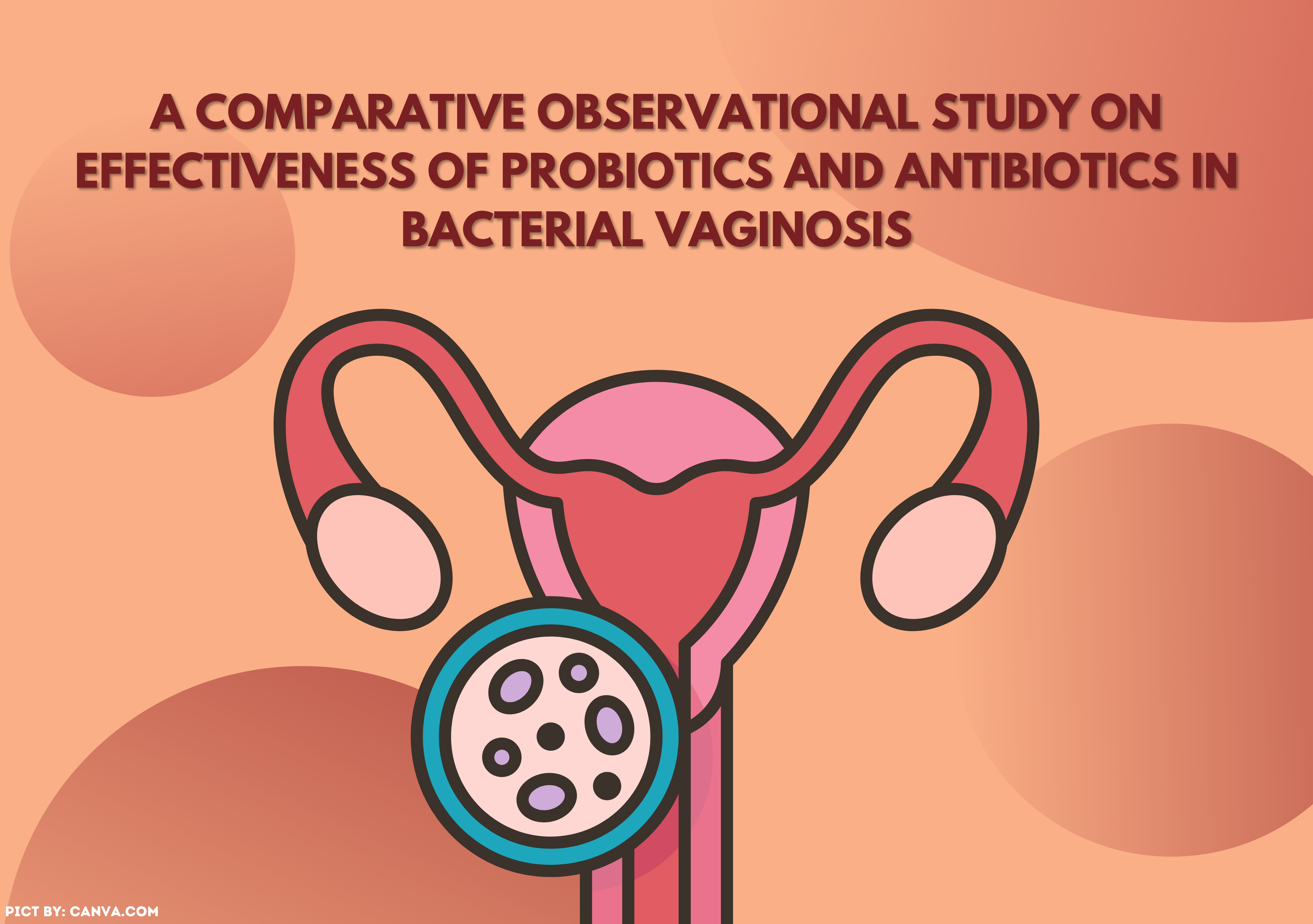ANALYSIS OF ACCEPTANCE OF E-HEALTH APPLICATION BY USERS IN PRIMARY HEALTHCARE CENTER IN SURABAYA CITY
Downloads
This study used the observational quantitative method to analyze the acceptance of information technology in the form of thee-Health. The theory of acceptance was further analyzed using the Unified Theory of Acceptance and Use of Technology (UTAUT) model. UTAUT model is the latest unified model that is an appropriate to explain the acceptance and use of information systems. The research objective was to analyze perceptions of the use of e-Health applications in the Surabaya City Health Center. The research design method used was cross-sectional design. The selected samples of 100 people were determined by multistage sampling in primary healthcare centers in every area of Surabaya. The independent variables in this study were performance expectancy, effort expectancy, social influence and behavioral intention while the dependent variable was the use of e-Health applications. Data were collected through questionnaires delivered via interviews. The results showed that the lowest indicator of acceptance by the users was the time needed to input data category to the e-Health application. This study concludes that the acceptance of e-Health by users primary healthcare centers in Surabaya is low. This study suggests a more widespread dissemination of information regarding the benefits of the use of e-Health along with technical assistance and guidance on the use of e-Health applications.
Keywords: UTAUT Model, e-Health application, primary healthcare center, acceptance
Andre Wahyudi, Shabrina Mufidah, Panji Windu Arista, F. M. (2017) Melejitkan Pengoptimalan E-Health dalam Meningkatkan Kualitas Pelayanan Kesehatan di Surabaya.
Andryanto, R. (2016) Pengaruh Kepercayaan, Persepsi Manfaat, Dan Persepsi Kemudahan Penggunaan Terhadap Minat Beli di Toko Online (Studi Empiris yang Dilakukan Pada olx.co.id di Yogyakarta).
Yogyakarta.
Arum, N. L. P. (2018) Analisis Penggunaan Aplikasi E-Health Oleh Masyarakat Berdasarkan Unified Theory Of Acceptance And Use Of Technology (Studi Di Wilayah Kerja Puskesmas Kota Surabaya). Universitas Airlangga, Surabaya.
Broderick, M. et al. (2003) ‘E-Health Defined', pp. 1–11.
Davis, F. D. (1989) ‘Perceived Usefulness, Perceived Ease of Use, and User Acceptance of Information Technology', MIS Quarterly, 13(3), pp. 319–340. https://doi.org/10.2307/249008
Diani, M. M. et al. (2017) Pengukuran Niat Pengguna Terhadap Penggunaan Aplikasi City113 Berdasarkan Decomposed Theory Of Planned Behavior Pada Kota Surabaya (Studi Kasus: Surabaya Timur) Measurement. Institut Teknologi Sepuluh Nopember Surabaya.
Hafizh, D. A. (2016) ‘Inovasi Pelayanan Publik : Studi Deskriptif tentang Layanan E-Health dalam Meningkatkan Pelayanan Kesehatan di Puskesmas Pucang Sewu Kota Surabaya', Kebijakan dan Manajemen Publik Volume, 4(3), pp. 1–9. doi: ISSN 2303 - 341X biasa.
Haryono, S. et al. (2015) ‘Pengaruh Shopping Orientation, Social Influence, dan System Terhadap Customer Attitude Melalui Perceived Ease of Use (Studi pada Apple Store)', Jurnal Manajemen Pemasaran Petra, 3(1), pp. 1–10.
Heijden, H. Van Der, Verhagen, T. and Creemers, M. (2003) ‘Understanding Online Purchase Intentions; Contributions from Technology and Trust Perspectives', European Journal of Information Systems, 12, pp. 41–48. https://doi.org/10.1057/palgrave.ejis.3000445
Khairiyah, W. (2017) Hubungan Antara Performance Expectancy, Efort Expectancy, Social Influence, dan Facilitating Condition Pada Intensi Dosen dalam Penggunaan Learning Management System (LSM) di Universitas Hasanuddin Makassar, Skripsi. Universitas Hasanuddin.
Nugroho, J. J. (2012) Analisis Faktor-Faktor yang Mempengaruhi Minat Pemanfaatan dan Penggunaan E-Ticket (Studi Empiris pada Biro Perjalanan di Kota Semarang). Universitas Diponegoro.
Rivai, M. B. (2014) Penerapan Model The Unified Theory Of Acceptance And Use Of Technology (UTAUT) Untuk Mmahami Tingkat Penerimaan dan Penggunaan E-Learning (Be-Smart) di Fakultas Teknik Universitas Negeri Yogyakarta. Universitas Negeri Yogyakarta.
Sa'idah, N. (2017) ‘Analisis Penggunaan Sistem Pendaftaran Online (E-Health) Berdasarkan Unified Theory of Accepptance and Use Of Technology (UTAUT)', Jurnal Administrasi Kesehatan Indonesia, 5(1), pp. 72–81.
Sabihaini (2006) ‘Analisis Pemanfaatan Teknologi Informasi dan Kinerja Individual (Studi pada Rumah Sakit di Yogyakarta)', Jurnal Widya Manajemen & Akuntansi, 6(1), pp. 1–16.
Santoso, B. (2010) ‘Pengaruh Perceived Usefulness, Perceived Ease of Use, dan Perceived Enjoyment terhadap Penerimaan Teknologi Informasi', Jurnal Studi Akuntansi Indonesia PENGARUH, pp. 1–15.
Sari, I. N. (2012) Analisa Model UTAUT pada Brawijaya Knowledge Garden (Studi Eksplanatif Penerimaan dan Penggunaan Sistem Brawijaya Knowledge Garden pada Universitas Brawijaya). Universitas Airlangga. Available at: gdlhub-gdl-s1-2013-sariindahn-23097-5.FULLTEXT.pdf.
Suhendro (2009) Pengaruh Perceived Usefulness Dan Perceived Ease of Use Dalam Penggunaan Sistem Informasi Keuangan Daerah. Universitas Sebelas Maret.
Venkatesh, V., M.G. Morris, G. B. D. and F. D. D. (2003) ‘User Acceptance Of Information Technology : Toward A Unified View', Mis Quarterly, 27(3), pp. 425–478. https://doi.org/10.2307/30036540
Wang, E. S. and Chou, N. P. (2014) ‘Consumer Characteristics, Social Influence, and System Factors on Online GroupBuying Repurchasing Intention.', Journal of Electronic Commerce Research, 15(2), pp. 119–132.
Yuniarti (2016) Upaya Peningkatan Penerimaan dan Penggunaan P-Care Oleh Petugas Puskesmas di Kabupaten Sidoarjo Dengan Metode Unified Theory of Acceptance and Use of Technology. Universitas Airlangga.
- The authors agree to transfer the transfer copyright of the article to The Indonesian Journal of Public Health effective if and when the paper is accepted for publication.
- Authors and other parties are bound to the Creative Commons Attribution-NonCommercial-ShareAlike 4.0 International License for the published articles, legal formal aspect of journal publication accessibility refers to Creative Commons Attribution-NonCommercial-ShareAlike 4.0 International License (CC BY-NC-SA), implies that:
- Attribution ” You must give appropriate credit, provide a link to the license, and indicate if changes were made. You may do so in any reasonable manner, but not in any way that suggests the licensor endorses you or your use.
- NonCommercial ” You may not use the material for commercial purposes.
- ShareAlike ” If you remix, transform, or build upon the material, you must distribute your contributions under the same license as the original.
































